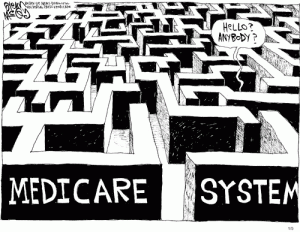The year 2016 will continue to be one of transition and change for the senior housing industry.
By Pam McDonald
Shep Roylance, Senior Vice President of JCH Consulting Group, a full-service real estate brokerage company and Senior Housing Forum partner, points out that over the past decade the senior living industry has seen more skilled nursing facilities (SNFs) close and eventually re-open under new ownership.
SNFs Have Been Struggling
He says, “It is no secret that many existing SNFs have struggled and, whether due to the recession or some other factor, we have seen numerous facilities file bankruptcy.”
He also cites a recent report from Integra Realty Resources (IRR), a successful real estate consulting firm, that said, “SNF construction will be ‘minimal’ in the world of senior housing throughout the remainder of 2016.” The report noted that any newly built facilities “will likely focus on short-term, post-acute rehabilitation services.”
So Shep asks, “What does this mean for senior housing – more specifically those interested in investing in SNFs?” He points out that a lack of SNF construction can be viewed as positive, depending on where you stand.
He says, “As we continue to see troubled, older facilities close their doors, we expect to see interested investors capitalizing on the situation. Under new ownership, many SNFs are able to get back on their feet and provide residents with high quality services.”
SNFs Are Being Bought and Renovated
While there may not be much new construction in senior housing, the following is taking place:
- More than 7,000 SNFs were under construction throughout the United States as of the third quarter of 2015
-
A substantial increase over the preceding year in which, during the same quarter of 2014, only 3,600 were under construction
Shep says, “These numbers show that more and more facilities are being bought and renovated, instead of construction of new nursing homes. Many of these older facilities were simply in need of an overhaul and specific interior renovations. We are not in need of new SNFs, we simply need to focus on how to make existing facilities better and more efficient.”
A Transitional Year
He also points to another survey conducted by IRR earlier this year that showed a general optimism about the nursing home market; 39% of those surveyed believe the senior housing market has yet to reach its high point.
Shep believes that this is another great sign for those thinking about getting into the industry and investing in a troubled nursing home or assisted living facility. He says, “The year 2016 will continue to be one of transition and change for the senior housing industry.” Shep views this transition and change as positive for both the industry and the senior living provider.
For more information, contact Shep Roylance at (805) 633-4649. Additionally, see current featured listing, at ShepJCH.com.








